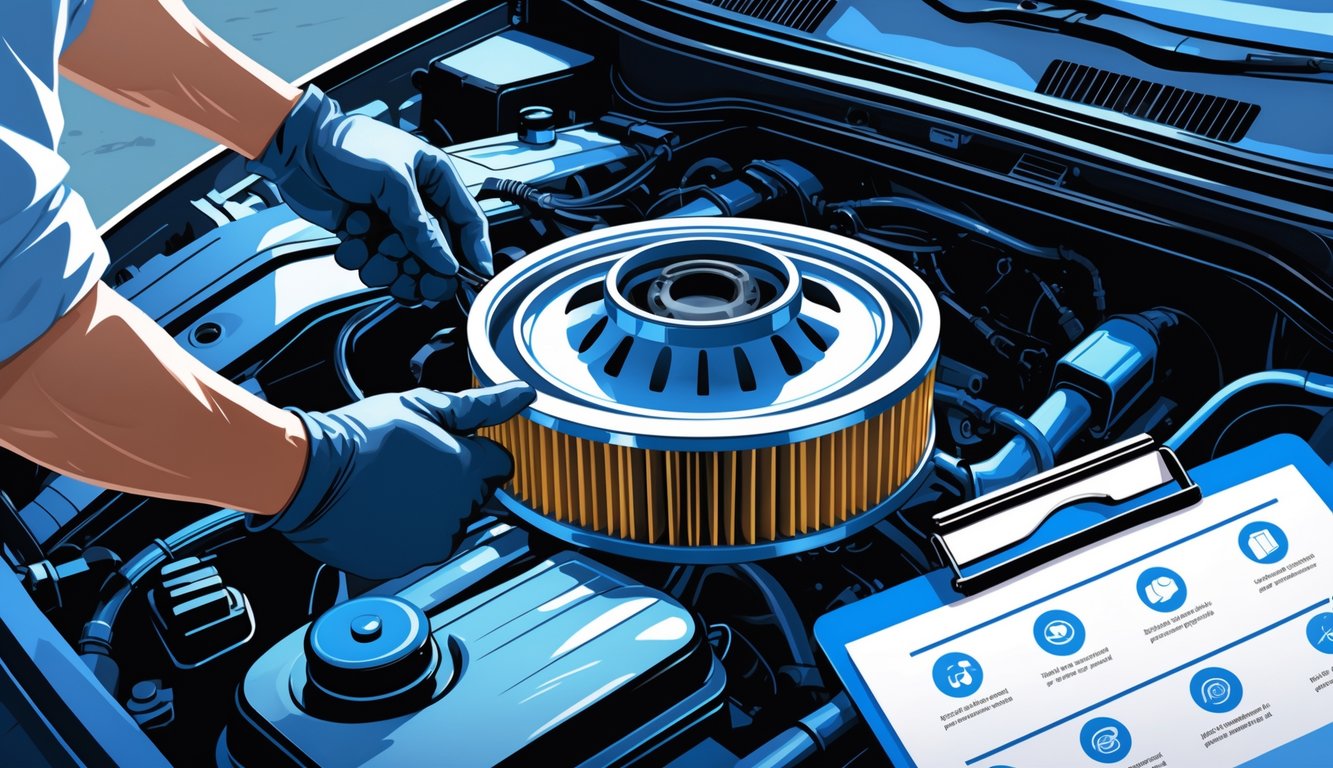
Getting the Most Out of Air Filter Replacements
Every time I finally pull out a filthy filter, I’m thinking, “Why did I wait so long?” There’s no such thing as “routine” when it comes to squeezing out better MPG or fewer shop visits—miss one tiny thing and your budget’s leaking.
Matching Filters to Your Vehicle
Once, a quick lube tech handed me a generic filter and said “close enough.” Nope. Fit and OEM spec matter, even if mechanics act like it’s all the same. Manuals spell out size, pleat count, material, all that. I’ve used “cross-listed” filters that fit, but then I get rattles, bad seals, or my car just feels sluggish.
Even “premium” filters aren’t all the same. Some don’t trap the right stuff or choke airflow. Consumer Reports, SAE notes, and Luberfiner’s interval analysis all pretty much say wrong filter = wasted fuel and pointless engine strain. If you’re picky, don’t just grab whatever’s on the shelf. Check construction, cross-reference, look at the foam or synthetic. Or just waste money at the pump. Your call.
Airflow and Dirt-Trapping Considerations
Airflow seems obvious—engines need to breathe. But put in a “super dirt-trapping” filter and sometimes your throttle gets sluggish. There’s this balance: catch particles down to 5-10 microns, but don’t suffocate the engine. SAE J726 test docs (not exactly thrilling, but whatever) show that every 10% drop in airflow can ding your fuel economy.
Ask three mechanics, get four answers. Some love reusable cotton gauze for airflow, but I’ve seen badly-oiled ones gunk up the mass airflow sensor—costs more to clean than a pile of disposables. Fuel economy studies tie dirty filters straight to worse MPG: more dirt = higher vacuum, richer fuel mix, more cash burned. And swapping a filter is cheap and fast—unless you screw it up with the wrong part or a clogged “upgrade.”
Frequently Asked Questions
Trying to keep your gas budget from vanishing? Air filters quietly bleed you dry, fill-up after fill-up. Routine maintenance? Sure, but then you drive through a dust storm or a pollen cloud and your “plan” is toast. And don’t get me started on lube shop “experts” who just shrug and charge you anyway.
What are the signs that my air filter needs to be replaced for better fuel efficiency?
Nobody tells you that lagging power on ramps might be your air filter—not just your imagination. Sudden hesitation, rough idle, bad acceleration—classic signs, but easy to blame on weather. My mechanic friend says customers come in complaining about more gas stops, but never think it’s the air filter choking things up. Fun fact: I once heard a whistle from the engine bay. Yep, that’s a thing.
How often should I change my air filter to maintain optimal fuel economy?
Honestly? Who knows. Manuals say 15,000 to 30,000 miles, but if you’re dodging city dust or construction, forget it. Two cars, same model, city vs. rural—filters wear out at totally different rates. I ran mine for 18 months and watched my fuel log nosedive before the “service” light even blinked. Real answer? Check it at oil changes. Nobody agrees on a magic number.
Can upgrading to a high-performance air filter really improve my gas mileage?
Sounds good, right? Google’s full of hype, but most “performance filter” gains are barely noticeable. EPA tests say standard paper filters don’t change MPG much unless your old one was basically a brick. Some reusable filters might flow better, but I’ve never seen a real-world jump at the pump.
What’s the difference between the engine air filter and cabin air filter regarding fuel consumption?
People mix this up all the time—engine air filter affects fuel, cabin’s just for allergies (unless you drive with the windows down, then who cares). Swap your engine filter for MPG. Cabin filter? Smells better, maybe less sneezing, but if your mileage changes, it’s probably the weather or you switched gas blends.
Is there a significant difference in fuel savings between expensive and budget air filters?
Everyone’s got an opinion—some swear by the $40 filter, but engineers and lab tests mostly shrug. No real proof that pricier filters save more gas. If it fits and seals, you get the basic benefit. I tried a “premium” once—wallet lighter, gas gauge didn’t care.
Could installing a new air filter lead to worse fuel economy, and if so, why?
Okay, so, installing a new air filter—sounds foolproof, right? Nope. I swear, last summer I swapped mine out and, I don’t know, either I jammed it in backwards or just picked the wrong one entirely because my gas mileage tanked. Like, noticeably. Didn’t even occur to me it could be the filter until I saw dust all over the mass airflow sensor and realized, wow, I’d basically invited unfiltered air to trash my engine. Who’s double-checking part numbers every time? Not me, apparently. And the ECU? That thing gets so dramatic with the air-fuel mix if you mess up even a little. Is it supposed to be this sensitive? Maybe I just have bad luck with car stuff, but honestly, you’d think something as basic as a filter wouldn’t be such a headache.
